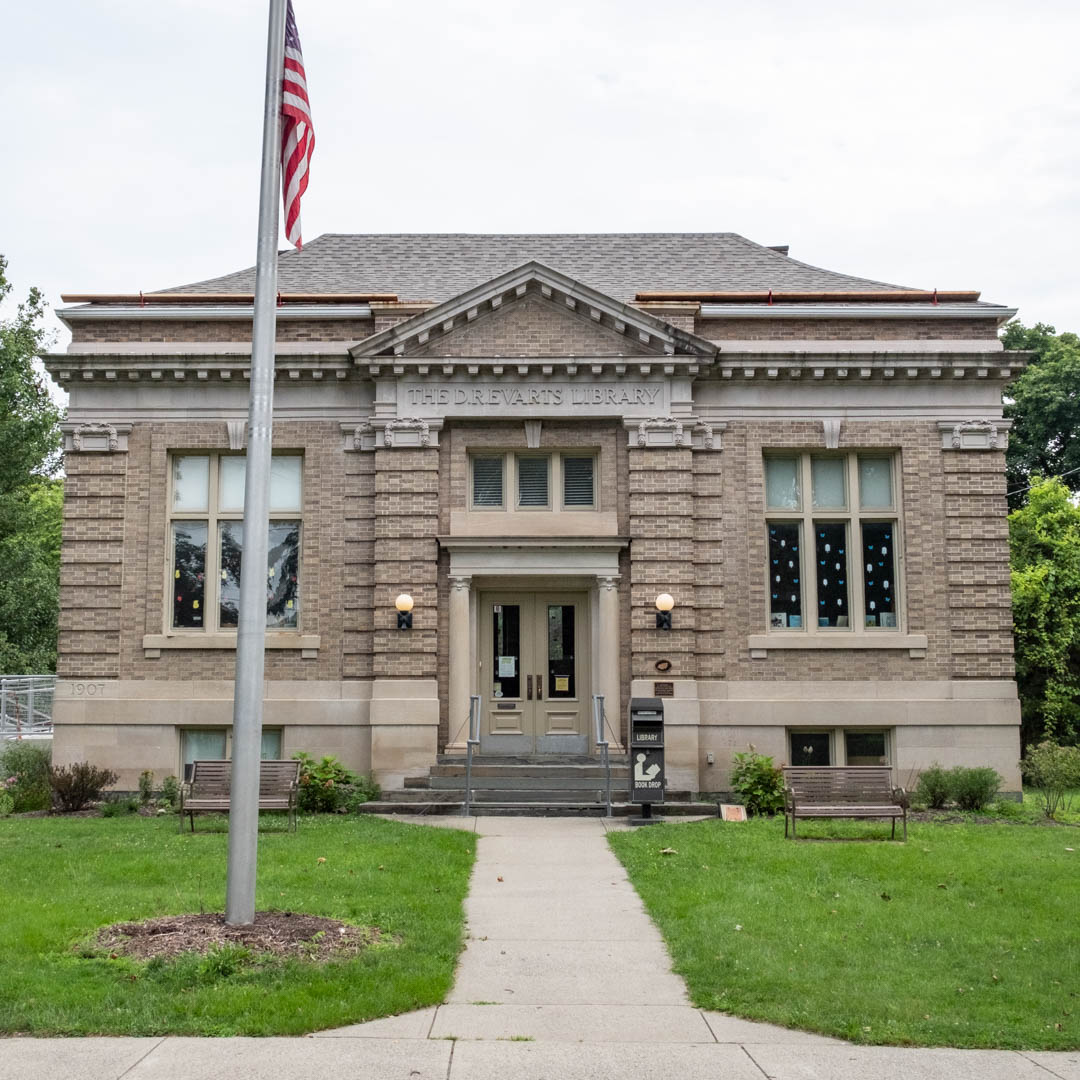D. R. Evarts Library (1907)
The Beaux-Arts style of architecture was quite popular in public buildings in the early years of the 20th century. Built in 1907, the D. R. Evarts Library is fine example of this style.
Daniel Redfield Evarts came from a large family with limited income, and had no free access to books or a quiet place to study. He spent his formative years in Athens longing for books to read. Due to the kindness of the Dutch Reformed pastor and congregation, he was allowed to use a small room attached to the rear of the church as a place to study with access to books. Working after school in his uncle’s grocery and bakery, he then landed a position with the New York and Philadelphia Transportation Company. He left Athens to fill this position, but as he prospered he never forgot his home town and the kindness shown to him. On his death he bequeathed Athens the money to build a library, with additional funds to be invested for further income.
The laying of the cornerstone in July of 1907 was a great occasion, touching off a three-day celebration called “Old Home Week” with speeches, parades, concerts, ball games, a motorboat race, and carnival. A church service closed the festivities. The cornerstone, laid with Masonic rites by the Civil War general George S. Nichols, assisted by S. H. Nichols, H. F. Dernell, Harmon Van Wort, and C. Porter, contains a box with copies of the wills of Daniel R. Evarts and his wife, Elizabeth, American flags, old coins and currency, an ice-tool catalog of H. F. Dernell and Company, business cards, and assessment rolls. The silver trowel used to lay the cornerstone hangs proudly, displayed on one wall of the library with portraits of D. R. Evarts and his children.
When the library was opened to the public on June 18, 1908, the eloquent Reverend M. Seymour Purdy, pastor of the Reformed Church, said in his address, “Each age is the heir of all the ages that have come before us. The past is ours mainly through the medium of books. It is no slight gift that the donor has bestowed upon us in giving to Athens this library. Just how much benefit you or I derive from his gift depends altogether upon ourselves.”
